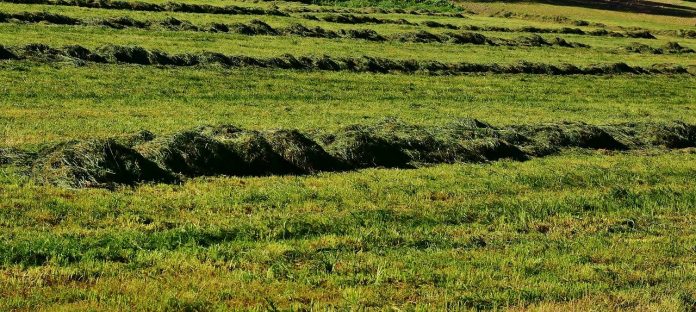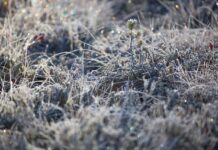The early dry weather allowed most of us to get our first cutting hay in a timely manner, and now we are into second-cutting hay. This is the time of the year that I like to remind everyone that it is a great time to assess if you have enough hay for the winter, as well as to consider if there are other things that can be done to assure adequate feed for livestock this winter.
Options
If you are going to have plenty of hay, can you graze some of those hay fields after second cutting? It is always cheaper to graze than to make hay. If you don’t need the fields to graze, can you make some extra to sell if you need the income? If you are short on hay, can you get enough in subsequent cuttings? If not, have you recently soil tested your fields? Improving fertility will help improve yields for the rest of the season.
How are your pastures holding up? So far this year, it looks like many are doing well with the recent rain. In my case, all of my hay fields but one can be grazed, providing flexibility for either more hay production or more pasture.
When I think about other things we can do for livestock feed if it will be short this winter, I believe the cheapest feed we can provide is corn stalks after harvest. Look around. Are there any corn fields in the area that could be grazed after harvest? I have seen it done with temporary fence built in a short period of time. How about forage fields that have not been utilized from neighbors that could be grazed for very little charge?
Stockpile
The next option for inexpensive additional forages is to stockpile fields to graze in the fall or early winter. All you need to do is make a final clipping, harvest or grazing of a field and let it sit and grow.
Recent research confirms that adding nitrogen fertilizer will increase yields. A good recommendation is to apply 100 pounds of urea per acre when you start to stockpile. Generally speaking, the earlier you start to stockpile, the higher the yields will be and the lower the quality.
Conversely, the later you start, the lower the yields and higher the quality. Fescue can be grazed well into the winter, but I suggest grazing orchardgrass before the end of the year as it dies back more in cold winter.
Plant something
Another option is to plant something. If you have fields that need to be re-seeded or you have small grain fields that are or will be harvested, brassicas such as turnips, or small grains like oats and cereal rye are good options to plant later in the summer. You can also plant a combination of small grains and brassicas.
Fertility can go a long way to improving forage yields. If your pH is low, applying lime as soon as possible is a great option. If we can correct the soil and allow the lime to react with the soil before applying fertilizer, production will be optimized.
Finally, most of us did get up first cutting hay in a timely fashion this year, making for good quality hay. Last year we got up some hay the first week of May and what I didn’t realize when I went to feed it was how fast they ate it. High-quality hay is much more digestible, and if you have that this year, be prepared for more consumption and plan accordingly — a good problem to have!
On our family farm, I think we reach a milestone when we finish first cutting as it is the bulk of feed that we will need to make it to next year. However, we still need some more hay to safely make it through the winter. This is why I like to plan and assess my potential needs at this point because the sooner we determine our needs, the more options we will have and more time to execute them.
(Chris Penrose is an OSU Extension Educator, Agriculture and Natural Resources and 4-H Youth Development in Morgan County. Questions or comments can be sent in care of Farm and Dairy, P.O. Box 38, Salem OH 44460.)











